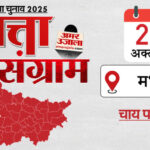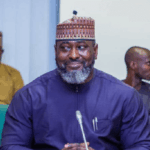
IIn many low- and middle-income countries (LMICs), limited public health resources often drive up health care costs to families already struggling with tight budgets. In the Philippines, about 45% of total health expenditure is paid by households out of pocket.
Making medicines more accessible could make it easier FIFinancial stress, saving families from hardshipfiChoosing between medical treatment and other basic needs like food, education and shelter. When people can afford medicines, they are more likely to seek prompt care, adhere to treatment, and avoid complications that lead to higher costs later.
Collaboration as a cornerstone
Despite significant progress in health reforms, no single region can achieve equitable access to essential medicines on its own. Sustainable progress depends on strong multistakeholder partnerships that bring together government, the private sector and civil society. These partnerships not only combine resources and expertise but also promote the accountability, transparency, and long-term sustainability that are essential to achieving health equity.
“Healthcare can be truly accessible, but only when the private and public sectors work together, bound by common goals and based on a strong ethical code of conduct. The tragedy of Filipinos dying just because they have no money must end,” Dr. Diana Edralin, president of the Pharmaceutical and Healthcare Association of the Philippines (PHAP), said in a recent Said during the healthcare forum.
Dr Edralin emphasized that meaningful progress in access to medicines will depend on strong partnerships between government and industry in three key areas.
The first is in the area of accelerating health technology assessment (HTA). Delays in HTA procedures hinder patients' access to innovative, life-saving medicines that are already the standard of care globally. Without timely HTA review, these drugs are often excluded from the Philippine National Formulary, making them unavailable in public health facilities and forcing patients to afford them.
A practical solution is to establish a reliance or expedited review mechanism that allows Philippine HTAs to take advantage of credible international regulatory bodies such as the US Food and Drug Administration (FDA) and the European Medicines Agency (EMA). Additionally, promoting structured and consultative discussions between industry experts and regulators can ensure that HTA assessments remain timely, evidence-based and transparent.
The second is in the area of implementing innovative access models. Innovative access models such as volume-based pricing and risk-sharing agreements can help reduce costs while expanding availability. Under these models, the government can purchase large quantities of drugs at low unit prices and pay in full only for treatments that provide verified patient outcomes.
Similarly, pooled purchasing and multi-year contracts can stabilize the supply chain and reduce costs. International experience shows that when governments increase health spending and implement effective access programs, out-of-pocket payments for drugs fall by 47% in Australia, 46% in Malaysia, 42% in South Korea, 41% in the United Kingdom, 32% in New Zealand, and only 9% in Thailand.
The third is in the area of strengthening partnerships with PhilHealth. While PhilHealth – the Philippine Health Insurance Corp. – has introduced programs aimed at improving drug access, significant opportunities remain to expand its coverage. Limited formal inclusion in benefit packages, particularly under the Z benefits programme, means that patients with catastrophic diseases still bear huge out-of-pocket costs for essential medicines.
With this, Dr. Edralin proposed the co-creation of a joint review team with PhilHealth to regularly evaluate and update Z benefit packages, giving priority to high-burden diseases. The partnership can also fast-track the recognition of private retail pharmacies as distribution points, bringing medications closer to patients, especially in underserved areas.
During the same forum, stakeholders signed a “Declaration of Commitment to Building a Stronger Nation through Better Access to Medicines”. Signatories include Philippine Pharma Procurement, Inc. President and CEO of PhilHealth Maria Blanca Kim Lokin and PhilHealth Vice President Walter Bacareza.
In line with the Universal Health Care (UHC) Act, the signatories resolved to strengthen initiatives that promote affordability, availability and access to quality medicines. These include the development of new distribution channels in remote communities. They also committed to developing partnerships, building stakeholder capacity, and adopting evolving technologies and market dynamics to ensure the sustainability of the Philippine healthcare system.
Teodoro B. Padilla is the executive director of the Pharmaceutical and Healthcare Association of the Philippines, which represents the biopharmaceutical drugs and vaccines industry in the country. Its members are at the forefront of the development, investment and delivery of innovative medicines, vaccines and diagnostics to help Filipinos live healthier and more productive lives.









